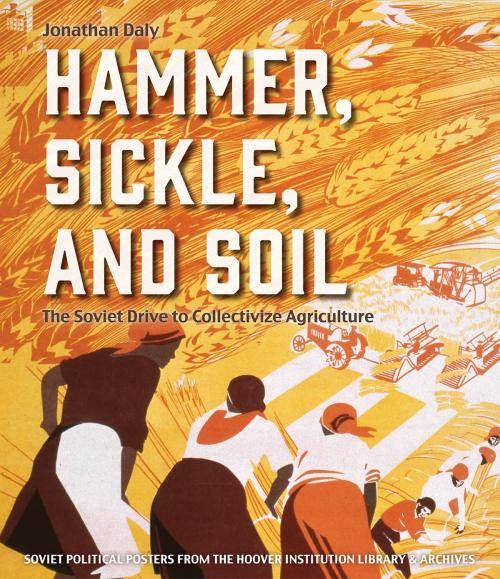Hammer, Sickle, and Soil
The Soviet Drive to Collectivize Agriculture
Nonfiction, Art & Architecture, General Art, Criticism, History, Asian, Russia| Author: | Jonathan Daly | ISBN: | 9780817920661 |
| Publisher: | Hoover Institution Press | Publication: | October 1, 2017 |
| Imprint: | Hoover Institution Press | Language: | English |
| Author: | Jonathan Daly |
| ISBN: | 9780817920661 |
| Publisher: | Hoover Institution Press |
| Publication: | October 1, 2017 |
| Imprint: | Hoover Institution Press |
| Language: | English |
In Hammer, Sickle, and Soil, Jonathan Daly tells the harrowing story of Stalin's transformation of millions of family farms throughout the USSR into 250,000 collective farms during the period from 1929 to 1933. History's biggest experiment in social engineering at the time and the first example of the complete conquest of the bulk of a population by its rulers, the policy was above all intended to bring to Russia Marx's promised bright future of socialism. In the process, however, it caused widespread peasant unrest, massive relocations, and ultimately led to millions dying in the famine of 1932–33. Drawing on scholarly studies and primary-source collections published since the opening of the Soviet archives three decades ago, now, for the first time, this volume offers an accessible and accurate narrative for the general reader. The book is illustrated with propaganda posters from the period that graphically portray the drama and trauma of the revolution in Soviet agriculture under Stalin. In chilling detail the author describes how the havoc and destruction wrought in the countryside sowed the seeds of destruction of the entire Soviet experiment.
In Hammer, Sickle, and Soil, Jonathan Daly tells the harrowing story of Stalin's transformation of millions of family farms throughout the USSR into 250,000 collective farms during the period from 1929 to 1933. History's biggest experiment in social engineering at the time and the first example of the complete conquest of the bulk of a population by its rulers, the policy was above all intended to bring to Russia Marx's promised bright future of socialism. In the process, however, it caused widespread peasant unrest, massive relocations, and ultimately led to millions dying in the famine of 1932–33. Drawing on scholarly studies and primary-source collections published since the opening of the Soviet archives three decades ago, now, for the first time, this volume offers an accessible and accurate narrative for the general reader. The book is illustrated with propaganda posters from the period that graphically portray the drama and trauma of the revolution in Soviet agriculture under Stalin. In chilling detail the author describes how the havoc and destruction wrought in the countryside sowed the seeds of destruction of the entire Soviet experiment.















